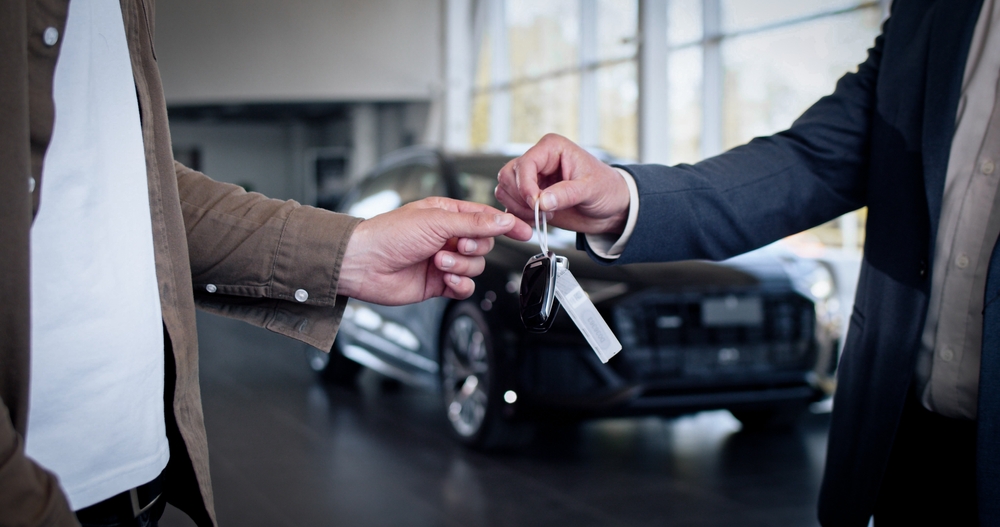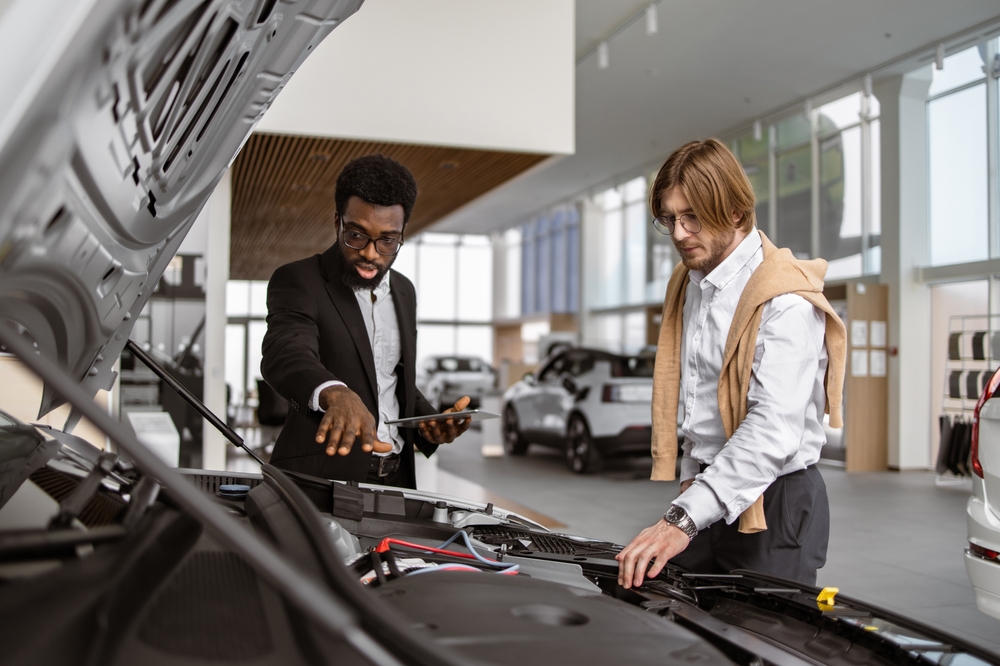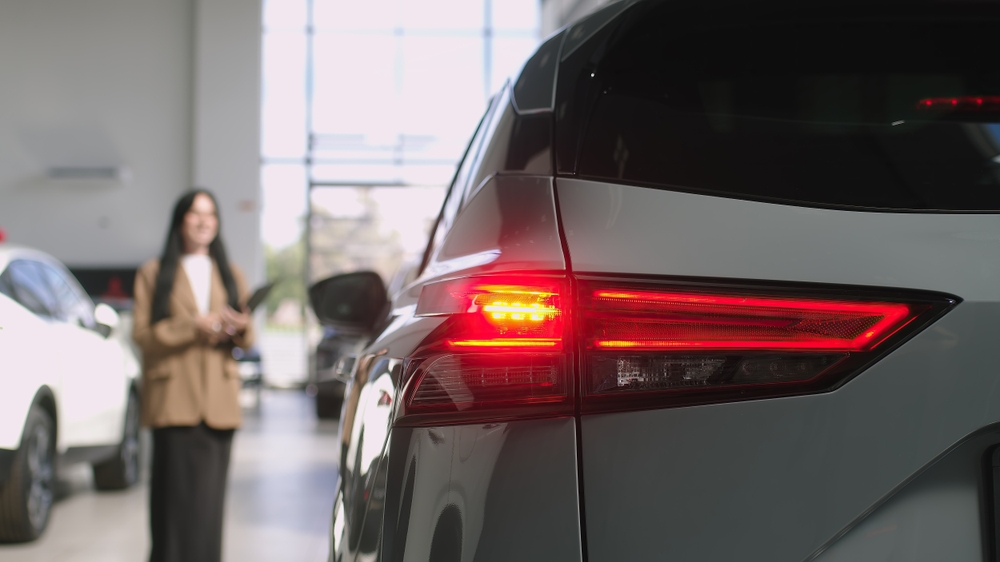
Blog

How Personalized Marketing Campaigns Increase Customer Retention in Auto Sales
Introduction: Why Customer Retention Matters in Auto Sales
In the competitive automotive industry, attracting new customers is a constant focus. However, dealerships often overlook an equally important, if not more valuable, asset: their existing customers. Keeping these buyers happy and coming back is the key to long-term success. Customer retention is not just about making another sale; it’s about building a loyal community around your dealership that drives predictable revenue and growth for years to come.
This is where personalized marketing makes a significant impact. By moving beyond generic ads and creating tailored experiences, you can forge stronger relationships with your customers. This article will explore how personalized marketing campaigns can transform your customer retention strategy, turning one-time buyers into lifelong advocates for your dealership.
The Cost of Losing Existing Customers
It’s a well-known business principle that acquiring a new customer costs significantly more than retaining an existing one. In the auto industry, this gap is even wider. The expense of marketing, lead generation, and sales efforts to attract a first-time buyer can be substantial. When a customer decides to go to a competitor for their next vehicle or service appointment, you don’t just lose a single transaction. You lose the entire potential lifetime value of that customer, which includes future car purchases, service and parts revenue, and valuable word-of-mouth referrals. Losing customers is a direct drain on your dealership’s profitability and market stability.
How Retention Impacts Long-Term Profitability
Focusing on customer retention directly boosts your bottom line. Loyal customers are more likely to make repeat purchases and are often less price-sensitive because they trust the value and service you provide. They become a reliable source of income through your service department, buying parts and accessories, and eventually trading in their vehicle for a new one. This consistent revenue stream provides financial stability, allowing your dealership to weather market fluctuations more effectively. Furthermore, happy, long-term customers become your best salespeople, referring friends and family and providing positive online reviews that attract new business at no extra cost.
The Power of Personalization in Automotive Marketing

Generic, one-size-fits-all marketing messages no longer cut it. Today’s consumers expect brands to understand them and communicate in a way that feels relevant and personal. Personalization is the process of using customer data to create marketing campaigns that speak directly to an individual’s needs, preferences, and history with your dealership. It transforms your marketing from a loud broadcast into a meaningful conversation, making customers feel seen and valued.
Understanding Buyer Preferences
Effective personalization starts with understanding your customers. What kind of vehicle did they buy? What is their typical service schedule? Did they express interest in specific features or models? By collecting and analyzing this data, you can build a detailed profile of each customer. This insight allows you to anticipate their needs. For example, you can identify customers whose leases are ending soon or those who might be interested in a new family-friendly SUV because their last purchase was a smaller sedan several years ago. This level of understanding is the foundation of a powerful, personalized marketing strategy.
Tailoring Messages to Individual Customers
Once you understand your customers, you can tailor your communications to match their interests. Instead of sending a mass email about a dealership-wide sale, you can send a targeted offer. For the customer who bought a truck, you can send information about new heavy-duty models or special offers on truck accessories. For the family that owns a minivan, you can send service reminders timed with their average mileage and highlight your dealership’s family-friendly amenities. These tailored messages are more likely to be opened, read, and acted upon because they are directly relevant to the recipient’s life and needs.
Techniques for Personalizing Marketing Campaigns

Putting personalization into practice requires the right techniques and tools. By segmenting your audience and using dynamic content, you can create highly effective campaigns that resonate with different customer groups. Let’s explore some of the most impactful methods.
Segmenting Audiences by Vehicle Type or Purchase History
Audience segmentation is the process of dividing your customer base into smaller, more manageable groups based on shared characteristics. You can create segments based on the model they own, their purchase date, whether they bought new or used, or their service history. For instance, you could create a segment for all customers who purchased a specific electric vehicle model in the last two years. This allows you to send them targeted information about software updates, charging station news, or special trade-in offers for the newest EV model.
Dynamic Content and Personalized Offers
Dynamic content takes personalization a step further. It allows you to create a single email or mailer template that automatically changes its content based on the recipient’s data. For example, a monthly newsletter could feature a main article for everyone but include a dynamic block with a special service offer tailored to the recipient’s vehicle. Someone who owns a Ford F-150 might see an offer for an oil change and tire rotation, while a Mustang owner might see a promotion for performance tuning. This ensures every customer receives a unique and relevant message.
Behavioral Trigger Campaigns
Behavioral triggers are automated campaigns that are sent in response to a specific customer action. These are incredibly effective because they are timely and contextually relevant. Common examples in the auto industry include:
- Post-Purchase Follow-Up: An automated email or mailer sent a week after purchase to thank the customer and request a review.
- Service Reminders: An SMS or email sent when a customer is due for scheduled maintenance based on their purchase date and average mileage.
- Lease-End Reminders: A series of communications that begin a few months before a customer’s lease expires, showcasing new models and outlining their options.
Loyalty Programs: Rewarding Your Best Customers
A well-designed loyalty program is a powerful tool for encouraging repeat business. These programs show your appreciation for your customers and give them a compelling reason to stick with your dealership for all their automotive needs. The goal is to make them feel like valued members of an exclusive club.
Incentivizing Repeat Purchases and Service Visits
Loyalty programs can offer points for every dollar spent in the sales or service department. These points can then be redeemed for discounts on future services, parts, or even a new vehicle purchase. This simple system gamifies the relationship and incentivizes customers to consolidate all their auto-related spending with your dealership. You can also offer milestone rewards, such as a free detailing service after five regular maintenance visits.
Exclusive VIP Offers for Long-Term Customers
To make your most loyal customers feel truly special, you can create a VIP tier within your loyalty program. Membership could be granted after a certain number of vehicle purchases or years of patronage. VIP members could receive exclusive benefits like priority service scheduling, complimentary loaner vehicles, invitations to private sales events, or early access to new model launches. These perks reinforce their special status and strengthen their emotional connection to your brand.
CRM Integration: Centralizing Customer Data for Better Targeting
Your Customer Relationship Management (CRM) system is the heart of your personalization efforts. It’s where all your valuable customer data lives. Integrating your CRM with your marketing tools is essential for executing a sophisticated and effective personalization strategy.
Storing and Analyzing Customer Data
A robust CRM captures and organizes every piece of information about your customers, from their contact details and vehicle purchase history to their communication preferences and every interaction they’ve had with your dealership. This centralized database provides a 360-degree view of each customer, enabling you to analyze trends, identify opportunities, and make data-driven decisions for your marketing campaigns.
Automating Personalized Campaigns
Modern CRMs can integrate seamlessly with marketing automation platforms. This allows you to set up the behavioral trigger campaigns and dynamic content we discussed earlier. For example, your CRM can automatically trigger a “Happy Anniversary” email one year after a vehicle purchase, complete with a personalized service offer. This automation saves your team time and ensures that no opportunity to connect with a customer is missed.
Tracking Customer Interactions Across Channels
Customers interact with your dealership through multiple channels: your website, email, phone calls, social media, and in-person visits. A well-integrated CRM tracks these interactions in one place. This allows you to see the full customer journey and ensure a consistent, personalized experience across every touchpoint. If a customer clicks on a specific model on your website, your sales team can be alerted to follow up with a relevant offer.
Multi-Channel Personalization: Email, SMS, and Direct Mail
To maximize your reach and impact, your personalized messages should be delivered through the channels your customers prefer. A coordinated, multi-channel approach ensures your message gets through and reinforces your brand.
Email Campaigns with Tailored Content
Email remains one of the most effective channels for personalized marketing. Use your CRM data to send highly targeted newsletters, promotional offers, service reminders, and educational content. Personalize the subject line with the customer’s name and ensure the content inside is relevant to their vehicle and history with your dealership.
SMS Reminders and Promotions
For timely and urgent communications, SMS is an excellent channel. Use it for appointment confirmations, service completion notifications, and time-sensitive promotions. Because text messages are so immediate, it’s important to use this channel wisely and always provide an option to opt-out. Personalized SMS alerts can significantly reduce no-shows in your service department.
Coordinated Direct Mail Offers
In a digital world, a high-quality piece of direct mail can stand out and make a lasting impression. Staffed events and direct mail are a core part of what we do at Pinnacle Sales & Mail. We know that a personalized mailer—such as a special invitation to a private sales event or a unique trade-in offer for their specific vehicle—can drive significant traffic to your dealership. When coordinated with email and digital ads, direct mail becomes a powerful part of a comprehensive retention strategy.
Case Studies: Automotive Dealerships That Increased Retention
The proof is in the results. Dealerships that embrace personalized marketing consistently see improvements in customer loyalty and profitability. At Pinnacle Sales & Mail, we’ve driven over $300 million in revenue for our clients by implementing these very strategies.
Dealerships Improving Retention Through Personalization
One of our clients, a mid-sized dealership group, was struggling with service department retention. We helped them implement an automated, multi-channel campaign that sent personalized service reminders via email, SMS, and direct mail. The campaign also included dynamic offers based on vehicle mileage and past service history. Within six months, they saw a 20% increase in repeat service appointments from customers who had previously gone elsewhere.
Measurable Increases in Repeat Sales
Another dealership wanted to increase repeat vehicle purchases. We helped them launch a VIP loyalty program and a lease-end campaign. By targeting customers 6-9 months before their lease matured with personalized trade-in offers and invitations to test drive new models, they achieved a 15% year-over-year increase in sales to existing customers. These campaigns not only boosted revenue but also helped them secure a steady supply of high-quality, pre-owned inventory.
Measuring Success: Metrics for Personalized Campaigns
To ensure your personalized marketing efforts are paying off, you need to track the right metrics. These key performance indicators (KPIs) will help you understand what’s working and where you can improve.
Retention Rate Metrics
Your customer retention rate is the most direct measure of your success. This metric calculates the percentage of customers who continue to do business with you over a specific period. You should also track your service retention rate and your sales retention rate separately to get a more detailed picture of your performance. A rising retention rate is a clear sign that your personalization strategy is working.
Customer Lifetime Value and ROI
Customer Lifetime Value (CLV) is the total net profit your dealership can expect to make from a single customer over the entire course of their relationship with you. Personalized marketing should increase your average CLV by encouraging more frequent service visits and repeat purchases. By comparing the increase in CLV to the cost of your marketing campaigns, you can calculate your return on investment (ROI) and prove the financial benefit of your retention efforts.
Common Challenges and How to Overcome Them
Implementing a personalized marketing strategy is not without its challenges. However, with careful planning and the right partners, these obstacles can be easily overcome.
Data Quality and Segmentation Issues
The success of personalization depends on clean, accurate data. Incomplete or incorrect data can lead to poorly targeted campaigns that frustrate customers.
Solution: Regularly audit and clean your CRM data. Implement standardized data entry processes for your team and consider using data enhancement services to fill in any gaps. Partner with an expert who can help you manage your data effectively.
Balancing Automation with Personal Touch
While automation is essential for efficiency, it’s important not to lose the human element. Customers still value genuine, personal interactions.
Solution: Use automation for routine communications like reminders and confirmations. Empower your sales and service staff to follow up with personal phone calls or emails, especially for high-value customers or complex situations. The goal is to use technology to enhance, not replace, the personal relationships your team builds.
Conclusion: Building Long-Term Relationships Through Personalization
In the auto sales industry, success is no longer just about moving metal. It’s about building lasting relationships. Personalized marketing is the most effective way to show your customers that you understand their needs and value their business.
Creating Long-Term Loyalty Through Personalized Marketing
By leveraging customer data to deliver tailored messages and offers, you can transform the customer experience from transactional to relational. This approach fosters trust, encourages loyalty, and creates a community of brand advocates who will support your dealership for years to come.
Future-Proofing Dealership Customer Retention Strategies
As technology evolves and customer expectations continue to rise, personalization will only become more important. By investing in the right tools, strategies, and partners today, you can build a robust customer retention program that not only drives immediate results but also future-proofs your dealership against an increasingly competitive market.
Ready to boost your customer retention and drive more revenue? Schedule a FREE Call with the team at Pinnacle Sales & Mail today and let us show you how our proven personalized marketing and staffed event strategies can work for you.









